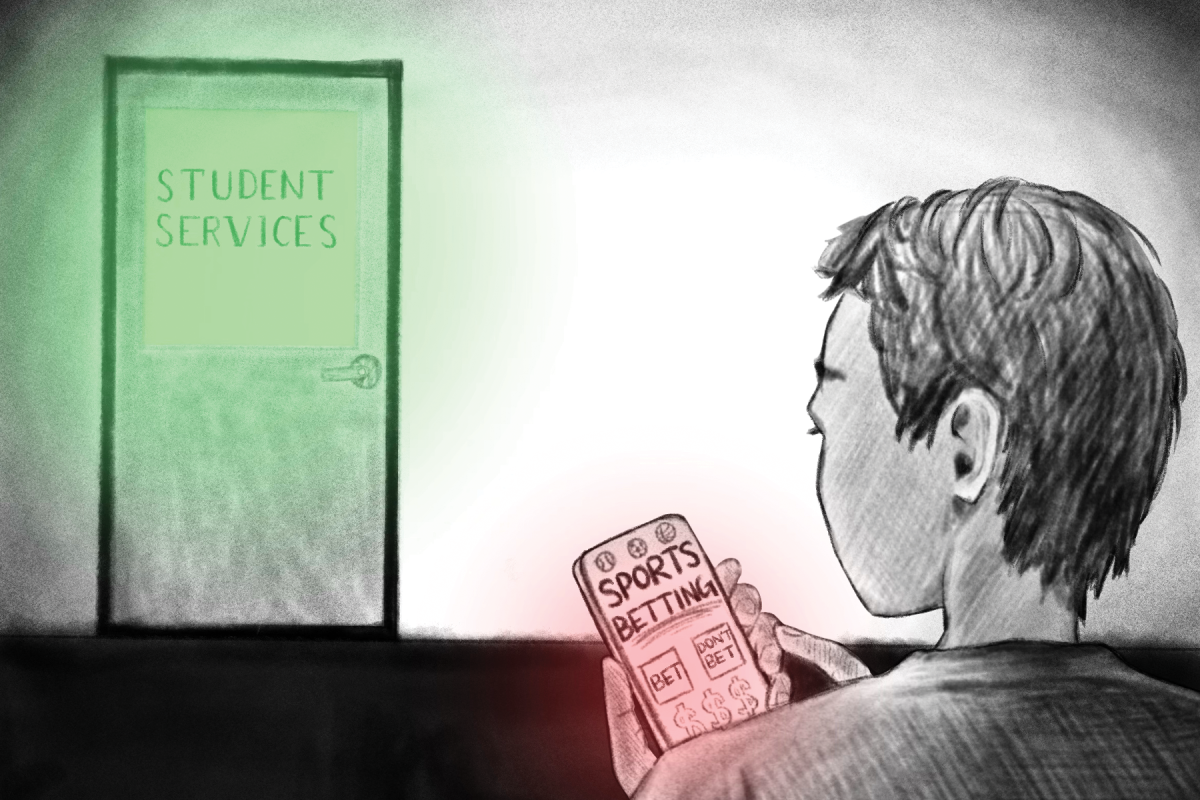Some students are partaking in an illegal activity, and it is not doing drugs or drinking alcohol. It is sports betting. Behind screens, students are risking money and falling victim to this addictive world. While some may not have a sports betting addiction at the moment, it quickly can become one. If it does, this addiction sends them down a path of hardships, potentially including an inability to budget, a tendency to overspend and high amounts of stress.
The International Centre for Youth Gambling Problems and High-Risk Behaviours at McGill University found that 4-6 percent of high school students are addicted to gambling, and another 10-14 percent are at risk of developing an addiction. With roughly 2,000 students at Glenbrook North, that would mean about 80-120 students are addicted to gambling, and another 200-280 students are at risk of becoming addicted.
It can be much harder to recognize a sports betting addiction because it is often takes place on apps, websites and other online platforms. This digitalization of this addiction can conceal its presence in people’s daily lives. While the exact number of students who bet on sports might be unknown, there are student betters at GBN. That is enough to start shedding light on sports betting addictions and start supporting these students who are struggling.
Parents should be aware of what their children are doing online and talk to them about the dangers of sports betting. They should monitor their children’s finances and technological behaviors. Parents are the first line of defense when it comes to their kids partaking in illegal actions, and they cannot be ignorant. If parents know their kids are sports betting, they must protect their kids and cut off sources that contribute to this behavior.
The school also has a unique opportunity to increase knowledge of sports betting addiction, especially through an All-School Workshop. The assembly could include experts to talk about the dangers of gambling and former addicts to tell their story. After the assembly, staff members from the Student Services Department could hold discussions in classrooms about how to support students who are struggling with this addiction. This would ensure teachers and students are learning about the addiction, which would help them recognize when students are struggling with it. It would also be beneficial for the Student Assistance Program to hold an accompanying webinar to pass on the information the students are taught to parents and guardians.
Sports betting addictions may be hidden, but they do not have to stay that way. If parents, students and staff work together to raise awareness, we can make a difference. We must go all in to support these struggling students. Increasing knowledge of this addiction is the best bet we can make.


